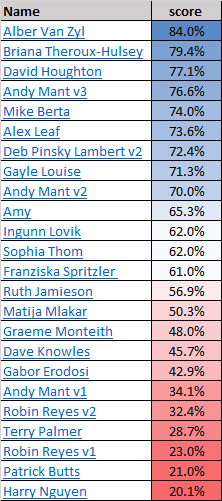I read this summary from the linked blog:
“In a 10,000 foot view, you can see vegans doing better than many high-fat keto dieters, and vice-versa. Why? there is essentially no difference between them, but core ideology. Both often have gross acute nutrient deficiencies, on a quest to become chronic, and most will. It’s kinda too dumb for me to spend more than a 3-sentence paragraph on. Ok, four sentences: veganism suffers from missing dense micro-nutrients in animal products. High-fat keto suffers from a processed diet of isolated fat, and isolated fat has almost no micronutrients.”
I’m not new to LC (20+ years), but <1 year keto and on a steep learning curve. I may be in a bubble and reading only keto positive articles, this doesn’t ring true to me on the nutrients. Does anyone have links to studies that show LCHF leads to micro-nutrient deficiencies? I feel amazing on almost 8-months keto, so if this is what a deficiency feels like and how my body functions I don’t trust this from my N=1. I also have an issue with the statement that LCHF requires a processed diet of isolated fat… I don’t add a lot of fat beyond what I cook, but then I have over 100-lbs more to loose after my intial 60 lost, and more added fat is likely in my future at maintenance… but I doubt as much as this blog implies. I purchase meat from a butcher that keeps the fat caps on for me, that’s a lot of unprocessed fat! Thoughts? Any articles you’d recommend? PS, I’m a ZC lover, I could be his worst case scenario Ketoer 



